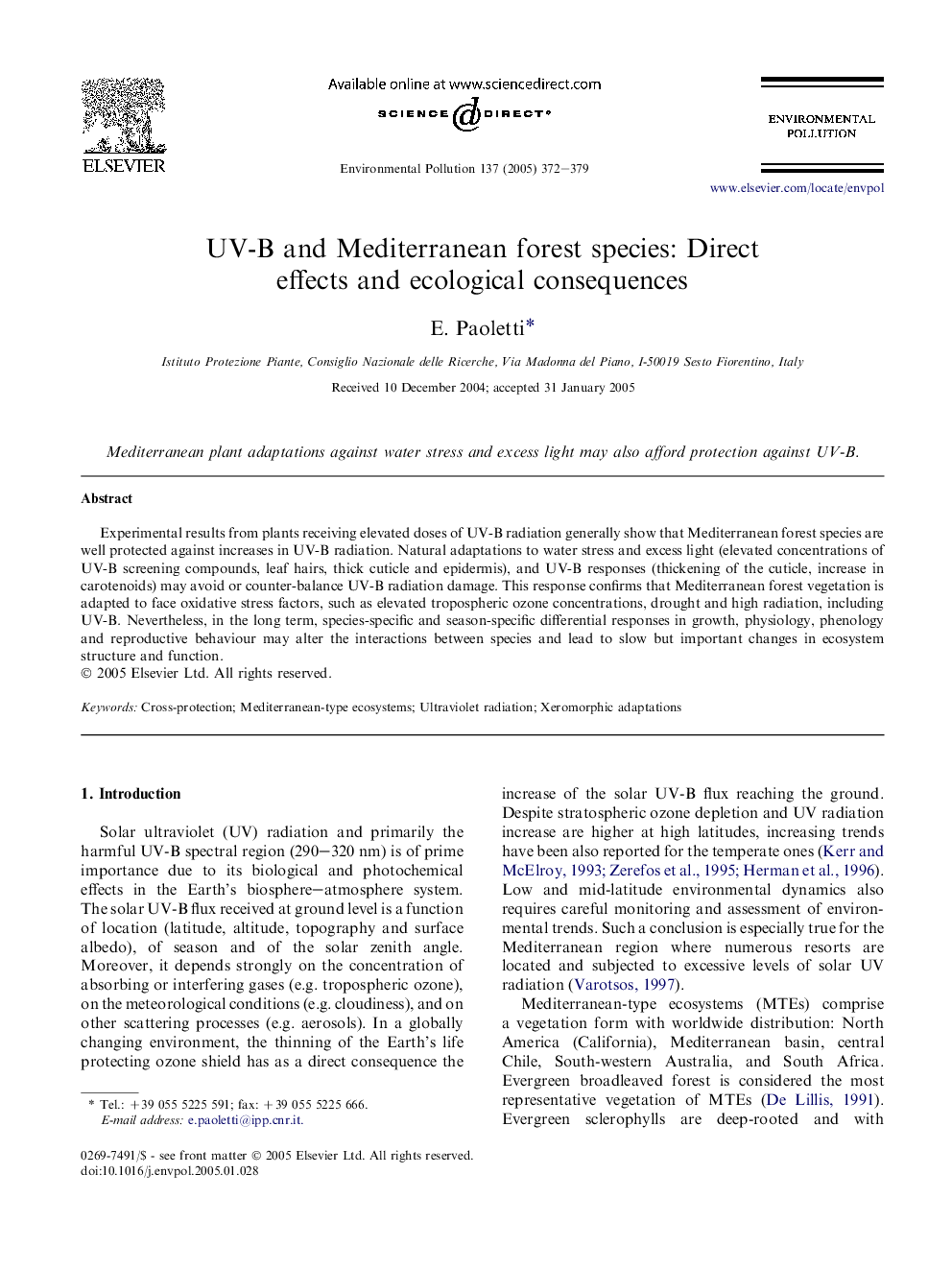| Article ID | Journal | Published Year | Pages | File Type |
|---|---|---|---|---|
| 9456335 | Environmental Pollution | 2005 | 8 Pages |
Abstract
Experimental results from plants receiving elevated doses of UV-B radiation generally show that Mediterranean forest species are well protected against increases in UV-B radiation. Natural adaptations to water stress and excess light (elevated concentrations of UV-B screening compounds, leaf hairs, thick cuticle and epidermis), and UV-B responses (thickening of the cuticle, increase in carotenoids) may avoid or counter-balance UV-B radiation damage. This response confirms that Mediterranean forest vegetation is adapted to face oxidative stress factors, such as elevated tropospheric ozone concentrations, drought and high radiation, including UV-B. Nevertheless, in the long term, species-specific and season-specific differential responses in growth, physiology, phenology and reproductive behaviour may alter the interactions between species and lead to slow but important changes in ecosystem structure and function.
Related Topics
Life Sciences
Environmental Science
Environmental Chemistry
Authors
E. Paoletti,
